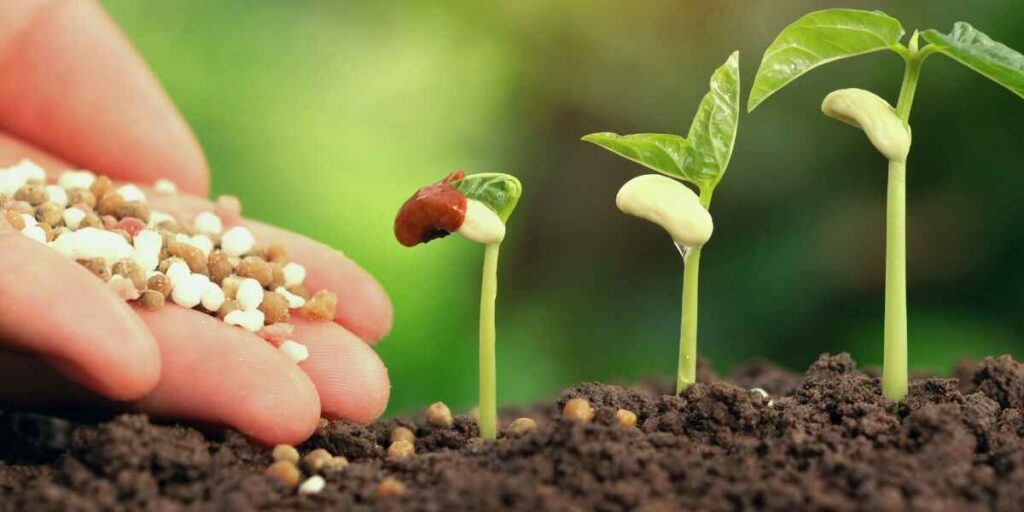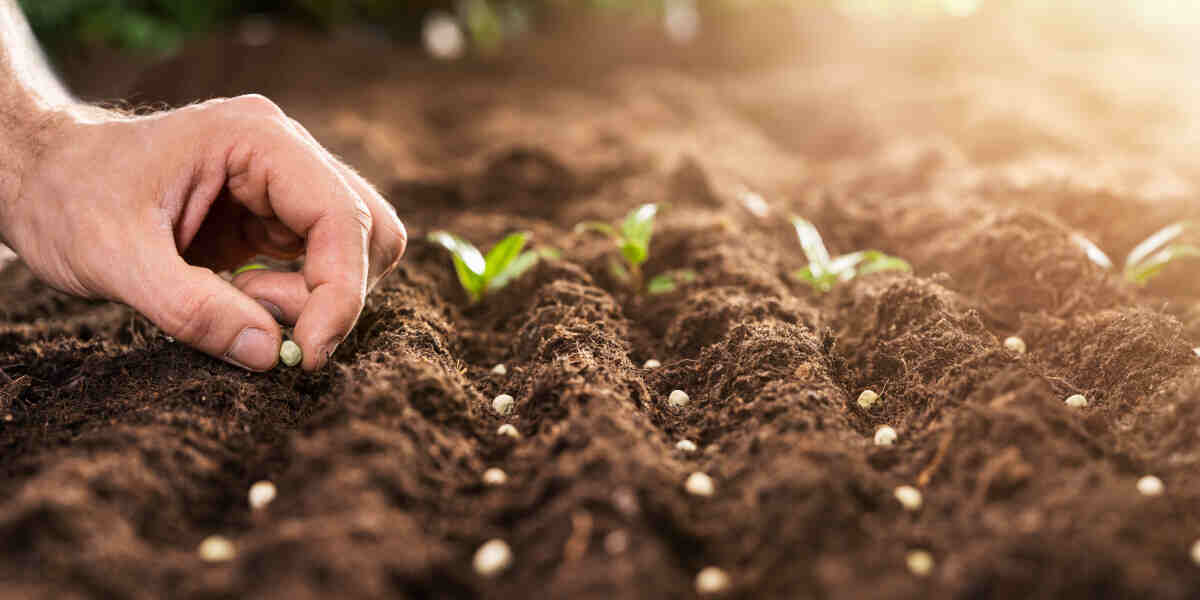Agro seeds are special seeds farmers use. They grow into crops we eat. These seeds come from plants grown for food. Farmers plant them in fields. The seeds turn into things like corn or wheat. Companies make some seeds to grow better. Agro seeds help feed people all over the world.
Ever wonder where your food begins? It all starts with tiny agro seeds. These powerful specks hold the future of our meals. Imagine a seed smaller than your fingernail becoming a tall cornstalk.
Or picture a wheat kernel transforming into golden fields of grain. Agro seeds are like nature’s own magic beans. They’re the unsung heroes of our dinner plates, silently working to feed the world.
Agro seeds are special seeds for farming. They grow into the crops we eat every day. These seeds come from carefully chosen plants.
Farmers use them to grow food on a large scale. Some agro seeds are changed to grow better crops. They help farmers produce more food for people.
Types of Agro Seeds & Uses
Cereal seeds are one type of agro seed. They include wheat, rice, and corn. Farmers plant these to grow grains for food. These seeds make up a big part of what we eat. Cereal seeds also feed farm animals like cows and chickens.
Another type is vegetable seeds. These grow into plants like tomatoes and carrots. People eat the parts that grow from these seeds. Some vegetable seeds are for home gardens. Others are for big farms that sell to stores.
Cereals & Grains
Cereals and grains are important foods. They come from plants like wheat, rice, and corn. Many people eat them every day for breakfast or in bread. They give us energy and nutrients. They can be cooked in many different ways.
Oilseeds
Oilseeds are plants grown for their oils. Common oilseeds include soybeans, sunflowers, and canola. Farmers harvest these seeds to extract the oil. The oil is used for cooking and making other products. Oilseeds are an important crop in many countries.
Pulses & Legumes
Pulses and legumes are healthy foods. They include beans, lentils, and peas. These foods are high in protein and fiber. They are good for your heart and digestion. Many dishes around the world use pulses and legumes.
Vegetable Seeds
Vegetable seeds are tiny but powerful. They hold the start of a new plant inside. When planted in soil, they grow into tasty veggies. You can buy seeds or save them from vegetables you eat. With care and patience, seeds become food for your table.
Fruit Seeds
Fruit seeds come in many shapes and sizes. Some Fruit seeds are big, like avocado pits. Others are tiny, like strawberry seeds. Many seeds can grow into new plants. People sometimes eat seeds, like in kiwis. Seeds help fruits make more fruits.
Spice Seeds
Spice seeds add flavor to food. They come from many plants. Some common ones are cumin and fennel. You can use them whole or ground up. Spice seeds make meals taste better.
Agro Seeds in Sustainable Agriculture

Agro seeds play a big role in farming today. They help grow food for many people. Some seeds are made to need less water. Others can fight off pests on their own. These special seeds can help save resources. Farmers can grow more food with less work. This helps make farming last longer.
New seeds are always being made. Scientists work hard to improve them. They try to make plants that grow faster. They also want plants that can handle heat better. Some new seeds even add nutrients to the soil. This helps keep the land healthy for future crops. Agro seeds are key to feeding the world.
Quality Seeds & Yield
Quality seeds are important for farmers. They help crops grow better. Quality seeds can make plants stronger. They also help produce more food. Farmers who use good seeds often get bigger harvests. This means more food for people to eat.
Seed Treatment
Seed treatment helps protect plants. It involves coating seeds with special chemicals. These chemicals fight off pests and diseases. Treated seeds grow into stronger plants. Farmers use less pesticide on treated crops. This makes farming better for the environment.
Seed Conservation
Seeds conservation is important for plants to grow. Many plants are in danger of dying out. Saving seeds helps protect these plants. People collect seeds from rare plants. They store the seeds in special places. This way, we can grow the plants again later.
Impact on Soil Health
Soil health is very important. Good soil helps plants grow well. Poor soil makes it hard for plants to grow. Farmers need to take care of their soil. They can add nutrients to make it better. Healthy soil is key for growing food.
Innovations in Seed Technology
Seeds are getting better thanks to new ideas. Scientists are making seeds that grow into stronger plants. These new seeds need less water to grow. They can also fight off bugs and diseases better. Some seeds are changed to grow faster too. This helps farmers grow more food.
There are cool machines to plant seeds now. These machines can put seeds in the ground very carefully. They space the seeds just right so plants have room. Computers help control where seeds go in the field. Seeds can also have special coatings to protect them. New tech helps more seeds turn into healthy plants.
Hybrid Seeds
Hybrid seeds are special plant seeds. They come from two different parent plants. Farmers like to use hybrid seeds. These seeds can make stronger and better crops. Hybrid plants often grow faster than normal plants. They can also resist more diseases.
GMO Seeds
GMO seeds are special seeds made by scientists. They change the genes of plants to make them better. These seeds can grow crops that fight off bugs. Some GMO plants can survive with less water. Farmers use GMO seeds to grow more food. But some people worry about eating GMO foods.
Organic Seeds
Organic seeds come from plants grown without chemicals. Farmers don’t use pesticides on these plants. The seeds are natural and not genetically modified. They can grow into healthy organic fruits and vegetables. Many people prefer organic seeds for their gardens. These seeds help protect the environment and our health.
Seed Labels & Certifications
Quality Assurance: Seed labels and certifications ensure the seeds meet certain quality standards, including purity, germination rate, and disease resistance.
Source Information: Labels provide essential details about the seed’s origin, variety, and lot number, helping buyers trace the seed back to its source.
Regulatory Compliance: Certifications indicate that the seeds comply with national or international agricultural regulations, promoting safe and sustainable farming practices.
GMO Status: Labels often specify whether the seeds are genetically modified or organic, allowing farmers to make informed choices based on their needs and preferences.
Usage Guidelines: Seed labels typically include planting instructions, such as optimal sowing depth, spacing, and environmental conditions for best growth.
Regulatory Challenges
Seed companies must follow. These regulations can vary widely between countries, making it hard for companies to operate globally. Some rules are strict, which can slow down the release of new seed varieties to the market. This can limit farmers’ access to better seeds that could improve crop yields and sustainability.
Navigating these regulations requires time, money, and resources, which can be a burden, especially for smaller companies. Compliance with regulations often involves extensive paperwork, testing, and approvals, which can be complex and costly. Additionally, differences in regulations around genetically modified (GM) seeds and organic seeds add another layer of complexity.
Want to read this? Whale Shark Compared to Human
Frequently Asked Questions
What are agro seeds?
Agro seeds are seeds used for planting crops like grains, vegetables, fruits, and spices.
Why are high-quality seeds important?
High-quality seeds help improve crop yield and resistance to diseases.
What types of agro seeds are there?
There are many types, including cereal seeds, oilseeds, pulse seeds, vegetable seeds, and fruit seeds.
How do hybrid seeds differ from regular seeds?
Hybrid seeds are bred from two different plants to combine the best traits of both.
What are the challenges in the agro seed industry?
Challenges include navigating complex regulations, combating seed fraud, and dealing with climate change impacts.
Conclusion
Agro seeds are vital for agriculture, as they help grow crops that feed the world. High-quality seeds lead to better yields, disease resistance, and sustainable farming. Challenges like regulatory issues, seed fraud, and climate change, overcoming these obstacles is essential. Innovation and clear regulations will ensure a reliable supply of diverse, high-quality seeds for the future.
Also Read:

